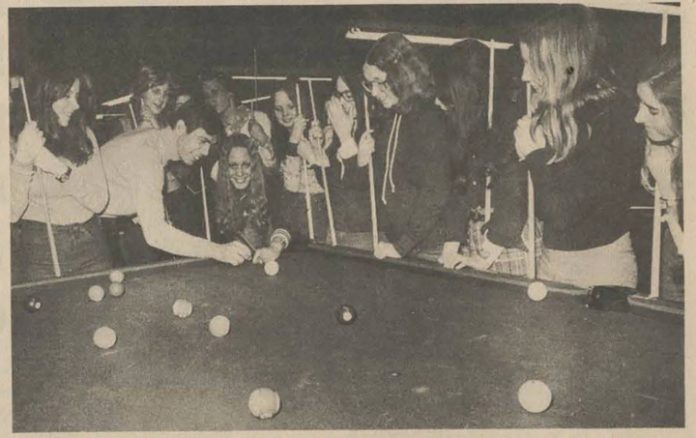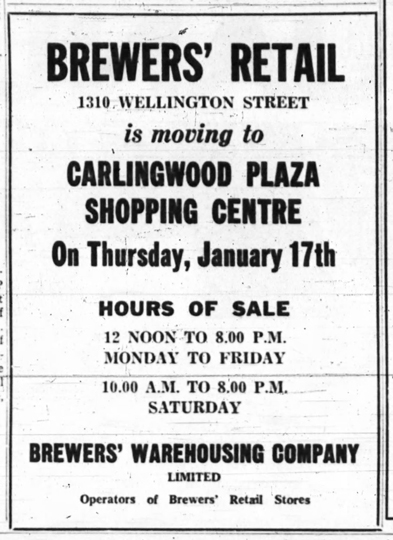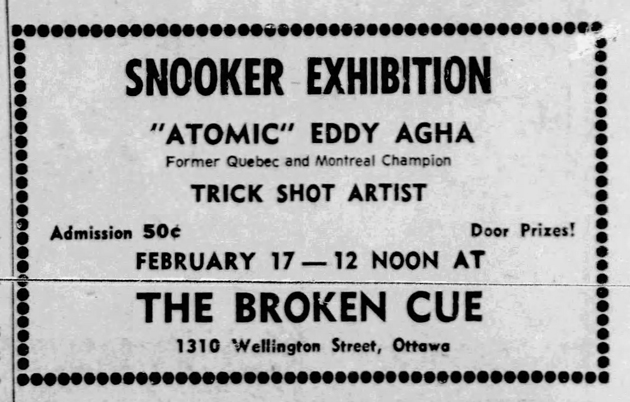By Dave Allston
One of the landmark businesses on Wellington West is Herb and Spice. Operating in this location since 1986, Herb and Spice is known for its high standards in fresh food, sourced from more than 80 local farmers, producers and small-batch makers.
The building itself is quite unique and also a key piece of the Wellington West streetscape. But did you know the story of the building is closely tied to the end of prohibition and early retail sale of beer in west Ottawa? It’s true!
When prohibition was legislated by the Ontario government in September 1916, it was seen as a necessity during the war. Bars and liquor shops were closed, and liquor—obtainable only for a limited number of allowable reasons—had to be kept and consumed at home. Even after the war ended, prohibition was maintained, bolstered largely by the clergy and the recently-franchised women’s vote. Thus, bootlegging became a popular activity, particularly in the working class neighbourhoods of the west end in the 1920s.
Prohibition ended in 1927 with the establishment of the Liquor Control Act, as the government made a compromise to appeal to the public: alcohol could be produced and sold only through government agencies, under the supervision of a liquor control commission. There was to be no public consumption of alcohol, and beer was to be sold “at cost” to be consumed at home. Wine and spirits were to be sold at LCBO stores. Beer was to be sold at a small group of privately-owned stores, but supplied through the Brewers’ Warehousing Company — a not-for-profit corporation by dozens of Ontario beer brewers to enable distribution and allow for cost savings on shipping, warehousing and storage. These stores were called Brewers’ Retail. The distribution system was considered the pinnacle of the industry across North America.
When purchasing beer, customers were required to fill out a form, indicating their name and address—this was required until 1969. The employee would then fill the order in the back room and bring it out to the customer—self-serve at some Brewers’ Retail locations would not begin until December 1971.
Though Kitchissippi’s first LCBO opened in May 1929 at 1008 Wellington Street West in Hintonburg, retail beer sales were slower to come to the west end. In fact, it was not until 1944 that the first Brewers’ Retail opened west of the downtown core. In the 1930s, local residents would have had to drive downtown to Queen Street.
This first Kitchissippi beer store opened in a small, former radio repair shop at 1203 Wellington Street West, now the recently-closed western half of Pizza Pizza at the corner of Hamilton. The west end proved to be a successful marketplace for beer.
In 1948, Brewers’ Warehousing instituted a modernization and construction program meant to improve facilities, services and convenience to the public, in an attempt to take stores out of smaller, cramped older buildings.
Thus the wheels were put into motion to construct Ottawa’s first custom-built retail beer store, right here in Wellington Village!
Real estate investors George Percy Erskine and Myer H. Dover found a vacant lot for sale nearby on Wellington, between Peter Sweety’s shoe repair shop—now Watson’s Pharmacy—and the new Carvers Drug Store—now Parma Ravioli. The lot had always sat vacant, the long-time site of an advertising billboard. In fact, the lot’s first owner Napoleon Lafreniere had surrendered it to the City of Ottawa in 1931 due to unpaid property taxes totalling $75. The City eventually sold the lot—and the one next to it—to Sweety for a few hundred dollars in 1945.
Erskine and Dover purchased the lot in March 1948. They immediately took out a building permit and a $20,000 mortgage, and, in less than two months, constructed the large single-storey concrete block building to house the new Brewers’ Retail store. It featured a modern vitrolite, solid glass front, with glass doors to match, and an interior retail section finished in bleached birch plywood, ashlar block ceiling and terrazzo floors. Counters were installed of a modern design, finished in plywood. A large refrigerated room was also part of the design.
Brewers’ Warehousing signed a 10-year lease with Erskine and Dover at $3,600/year rent, and the Brewers’ Retail Store at 1310 Wellington Street West opened in May 1948.
The store benefited from being the most western location for beer sales for many years. The former Nepean Township area of the city—from Western Avenue to Woodroffe Avenue—continued to remain dry through several plebiscites held into the early 1960s. It was not until January 1962 that westenders in the Westboro-McKellar area voted to allow liquor to be sold in outlets, bars and dining rooms.
This opened up the west end to beer sales, where a new large store was inevitable. On top of this, Brewers Retail had just opened a large new location at 1550 Scott St. in November 1961. The Wellington Street location had become obsolete. Myer Dover (now the exclusive owner of the property) sold the building in February 1962 to Howard Darwin, who had opened a jewellery shop next door in 1955.
The Brewers’ Retail operated on Wellington through 1962, but moved to their new location at Carlingwood Mall—in a building later demolished for the east parking garage—on Jan. 17, 1963.
Replacing the beer store on Wellington was The Albertan, a billiards and pool hall. The interior was modified to accommodate the tables for game play, as well as a restaurant and eating area, where The Albertan’s pizza became a local favourite in the early days of pizza. The Albertan was a popular hang-out for local teens, particularly Fisher Park high students, as the hall had a reputation of allowing underage youth to drink.
The business was acquired by Douglas MacDonald in August 1970, and he changed the name to The Broken Cue—MacDonald would soon grow the Broken Cue chain with multiple locations, including one at Hampton Park mall. The Broken Cue put a focus on youth, offering classes and hosting annual high school snooker championships. It also began hosting major tournaments, as well as demonstration shows with top North American players performing tricks.
By the fall 1980, the Broken Cue had closed, and the building became a clothing store called “Work-Duds,” selling uniforms and work clothes. It later briefly became “Circle S Western Duds.”
In early 1986, Herb and Spice moved into the building. The business had begun back in 1973 on Somerset Street by Michael Steinberg and his friend Jeff Sugarman. The business plan was to provide alternative foods to a growing vegetarian culture. It was one of the original natural food stores, in an era where this was unique.
“One of the goals was to educate people. People thought if they didn’t have meat and potatoes on their plate for every meal, it wasn’t a meal. So, we brought in an alternative,” Steinberg told the Ottawa Citizen in a 1999 interview.
This location of Herb and Spice is still operated by original proprietor Steinberg and his family and still offers one of the biggest selections of locally grown fruit and vegetables outside of farmers’ markets, with three-quarters of the business dedicated to fresh food.
A unique and much-loved business, located in a building with a unique history of its own!


